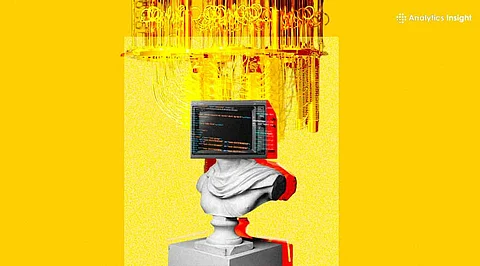

The globe is standing at the cusp of an AI-driven revolution, where smart computing is transforming sectors, remaking economies, and reimagining human connections with technology. No longer limited to research facilities or science fiction fantasies, AI-driven systems now determine stock market trends, aid in life-saving operations, and even design personalised shopping experiences. From self-driving cars to chatbots copying human emotions, smart computing has effortlessly integrated itself into daily life. However, while AI's power continues to spread, major impediments loom in the shadows, ready to hamper this accelerating evolution. Rising energy consumption, creaking infrastructure, and ethical conundrums overhang the promising future of the industry. Standing at this juncture of technology, one wonders: Will innovation keep pace with its problems?
The intelligent computing market worldwide has grown exponentially in the past few years. In 2025, it is expected to reach about US$190 billion, nearly double what was previously estimated. The acceleration is driven by growth in the need for AI-fuelled automation, forecasting analysis, and instant data computation across industries such as healthcare, finance, vehicles, and commerce. With AI adoption still deepening into commercial life, greater attention is given towards more mature use cases that cover natural language understanding, visual AI, and generative model-based AI.
Medical care: Artificial intelligence-powered diagnostics, robot-assisted surgeries, and customised medicine are revolutionising the treatment of patients. Algorithms can now interpret medical scans, forecast disease development, and suggest bespoke treatments with high precision.
Finance: Machine learning algorithms are being used for detecting fraud, assessing risks, and auto-trading, and this allows banks to make quicker and smarter decisions.
Automotive: The drive towards autonomous vehicles has spurred AI development at a rapid pace, and firms are using deep learning algorithms to improve safety and navigation.
Retail and E-commerce: AI is transforming customer experiences with individualised suggestions, sales forecasting, and supply chain management, rendering companies more efficient and responsive to customers' actions.
In the midst of extraordinary developments in intelligent computing, pressing challenges remain, some acting as impediments for mass application.
Energy Consumption: The energy consumption of data centres that are operated using AI has really gone up to the point of consuming an ever-increasing share of all electricity consumed around the globe. As such, investments in green power solutions are required if the infrastructure is to continue on its current pace of growth.
Infrastructure Constraints: The more complex AI models demand an enormous amount of computation; unfortunately, infrastructure can hardly keep up. In this regard, Nvidia's CEO pointed out recently that a 100-fold increase in AI computing capability is required, to ensure that the advancement of AI reasoning and decision-making abilities can continue.
Ethical and Security Issues: The more autonomous AI systems become, the louder rise the challenges pertaining to bias, transparency, and accountability. The ethical considerations of data privacy and job displacement remain hotly debated as to how best to regulate the development of AI.
In an effort to remain competitive, major tech firms are making massive investments in AI and smart computing. Recently, Nvidia announced its new Vera Rubin and Blackwell Ultra AI chips in anticipation of demand for processing power for advanced AI systems. By 2028, it predicts that revenue from data centre infrastructure will reach US$1 trillion USD and thus shows how much AI is becoming important to the IT industry.
According to an expert, soon, AI is looking to cause revolutionary changes across industries in a manner that has never been felt before. Some foresee that artificial intelligence is going to transform different industries, including renewable energy, and fast-track the development of new materials for greener power sources.
In future, AI-related medical advancements can truly provide individualised solutions that are indeed much less expensive and improve patient outcomes and life expectancies. The other area of great promise is in the interface between artificial intelligence and quantum computing for solving problems that are beyond the abilities of conventional computers.
As the progress in smart computing accelerates, the solutions for energy efficiency, infrastructure growth, and ethics will be important in the responsible and sustainable development of smart computing. The future of AI is indeed promising but shall require simultaneous effort from policymakers, scientists, and businessmen to balance innovation and accountability.
